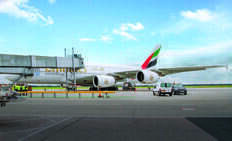- £2.5 million funding supports SAF production at Stanlow using methanol-to-jet technology.
- The facility will produce up to 200,000 tpa of SAF from 550,000 tpa of renewable methanol.
- SAF will be blended on-site and supplied to UK aviation via existing infrastructure.
- UK SAF Mandate requires 22% SAF in jet fuel by 2040, up from 2% today.

Funding and Project Overview
Essar Energy Transition has received £2.5 million from the UK Government's Department for Transport to develop a Sustainable Aviation Fuel (SAF) production hub at Stanlow. This initiative is part of the Advanced Fuels Fund scheme.
Production and Technology
The Methanol-to-Jet (MtJ) facility aims to produce up to 200,000 tonnes per annum of SAF using approximately 550,000 tonnes of renewable e-methanol and bio-methanol. These feedstocks will be sourced both domestically and internationally, including from Essar Future Energies' project in Gujarat, India.
Infrastructure and Integration
Stanlow Terminals Ltd will provide critical import and storage capabilities, enabling access to low carbon intensity methanol feedstocks. The existing facilities at Tranmere and Stanlow will support large-scale renewable methanol imports and SAF storage. The SAF will be blended on-site with existing jet fuel production, creating a direct supply route to the UK aviation sector.
Regulatory Context and Future Goals
The UK SAF Mandate, effective from January 1, 2025, sets targets for aviation fuel suppliers to incorporate SAF into jet fuel. By 2040, 22% of total jet fuel demand must be SAF, up from 2% today. The MtJ facility will help meet these obligations by 2035. The funding is part of a £63 million allocation to support advanced SAF projects, with further support anticipated beyond March 2026.

